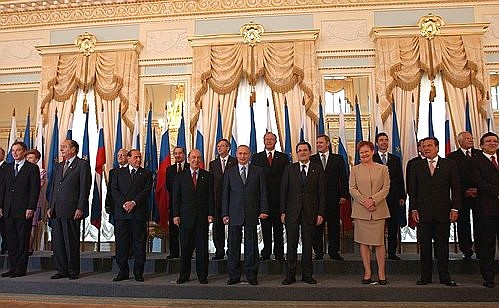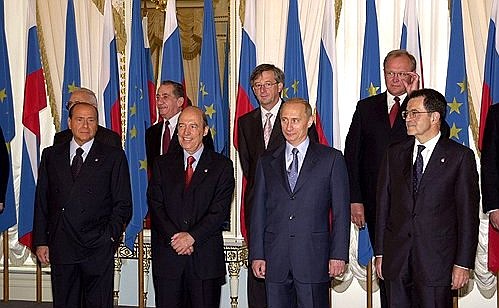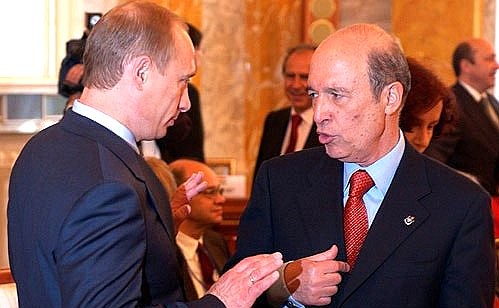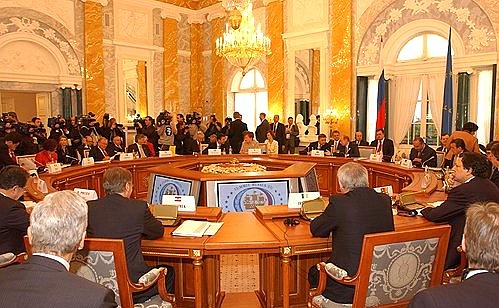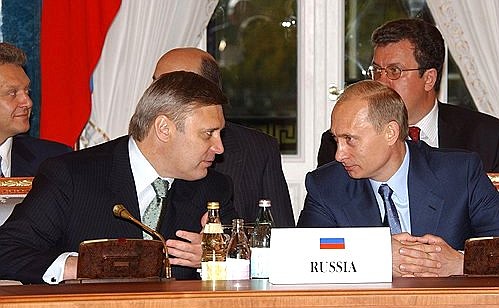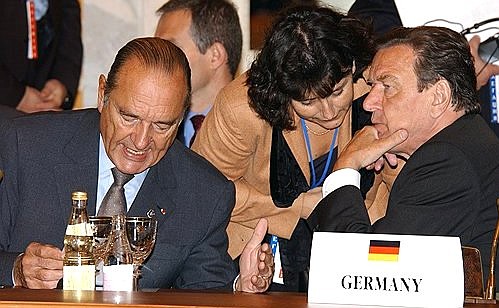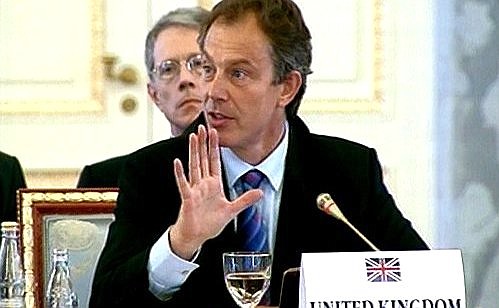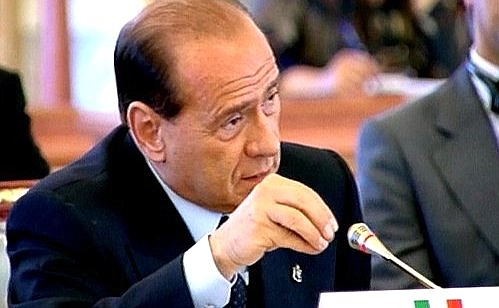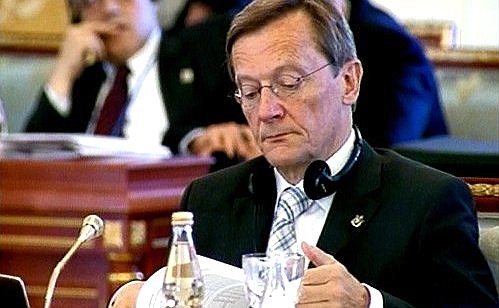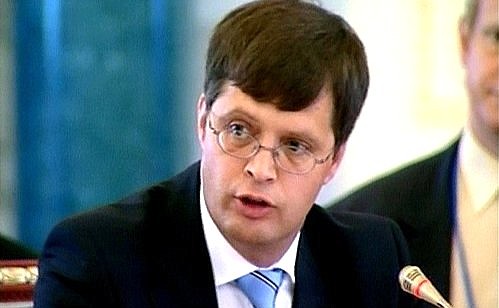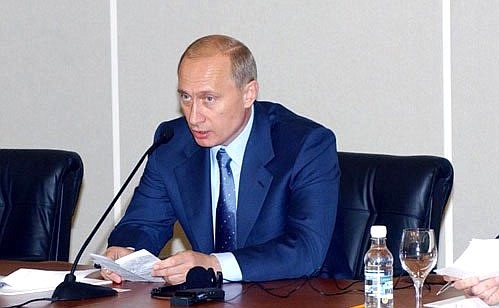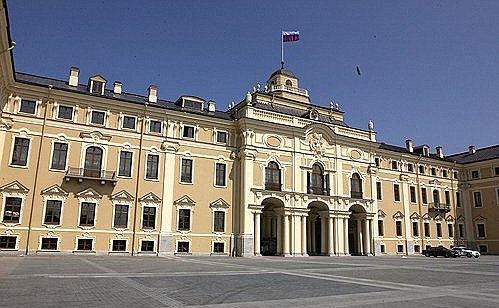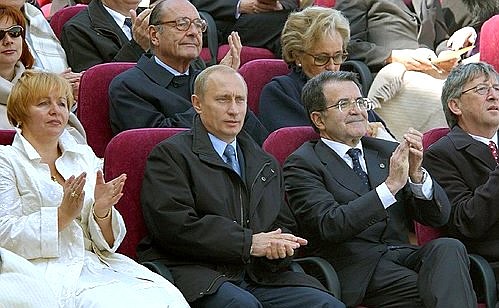It was the first enlarged-format summit of the heads of state and government of all the EU member countries (with the exception of Spanish Prime Minister Jose Maria Aznar, who was absent because of internal political problems in Spain). Taking part as observers were the leaders of 10 would-be members of the European Union.
Another distinctive feature of the Petersburg summit was the total openness to the media. Journalists could watch the three-hour debates live on screens outside the conference room.
During the talks the parties discussed many aspects of cooperation and mapped out guidelines for the development of the Russia-EU dialogue.
The participants agreed in principle on the formation of four common spaces in economics, external and internal security, science and culture and welcomed the commitment of the High-Level Group to prepare a concept for the creation of a common European economic space by the next summit. During the discussion the heads of state and government considered the possibilities of Russia joining the World Trade Organisation and agreed to continue negotiating all the outstanding issues on mutually acceptable terms. The European Commission representatives spoke in favour of a more active energy dialogue and expressed hope that Russia would join the Energy Charter.
A detailed exchange of opinions took place on the consequences of another wave of expansion of the European Union scheduled for May 1, 2004. Speakers noted that the admission to the EU of 10 central and east European countries would bring the parties still closer together, which would require an adjustment of the format and practical content of the Russia-EU partnership.
To intensify and upgrade political contacts, the participants in the summit agreed to restructure the mechanisms of day-to-day dialogue and transform the existing Cooperation Council into a Permanent Partnership Council. The existence of the new body would make it possible to have regular consultations not only at the level of foreign ministers, as previously, but at the level of other ministries.
The lifting of existing restrictions on contacts between the people of Russia and the European Union came in for special attention at the summit. The parties agreed to sign agreements on readmission and study the possibilities of abolishing the visa regime in the medium term.
The leaders of Russia and the EU discussed the environmental problems that were making a notable impact on trade and economic relations. One of the items discussed in this connection was the improvement of the systems of marine safety, oil transportation and nuclear waste disposal. The European Commission called on the Russian Government to ratify the Kyoto Protocol as soon as possible.
The summit also discussed current world problems, especially the fight against international terror and transnational crime. The Russian President expressed his condolences to Spanish Foreign Minister Ana Palacio and the whole Spanish people in connection with the terrorist act in the Spanish province of Navarra, which claimed several lives. The crime gives added proof to the world community that the threat of terrorism is very real, Vladimir Putin stressed. Russia and the European Union reaffirmed their commitment to continue regular consultations on anti-terrorism in accordance with the Joint Statement on International Terrorism passed by the summits in October 2001 and November 2002 in order to work out a common approach to the fight against terrorists and their sponsors.
The heads of state and government expressed concern about the sharp growth of drug trafficking from Afghanistan. Because that problem has spread far beyond the region and has become global, Russia and the EU reaffirmed their commitment to contribute to international measures to fight the production of narcotics in Afghanistan and in neighbouring countries and agreed to intensify their interaction with the interim Afghan administration to make national policy in liquidating illegal opium poppy and hemp crops more effective.
In addition to Afghanistan, the summit participants exchanged opinions on other important items of the international and regional agenda, including the Middle East, the Balkans and Iraq, the problem of WMD non-proliferation and the Cyprus settlement.
From the results of the meeting Russian and EU leaders issued a joint statement “The 300th Anniversary of St Petersburg: Three Centuries of Common European History and Culture”. President Putin, the Prime Minister of Greece, the current chairman of the EU, Konstantinos Simitis, and the head of the European Commission, Romano Prodi, made statements to the press and answered questions from journalists.
After the official summit the distinguished guests attended the ceremony of the opening of the Konstantinovsky Palace and watched a gala concert featuring world classical and modern music stars.
